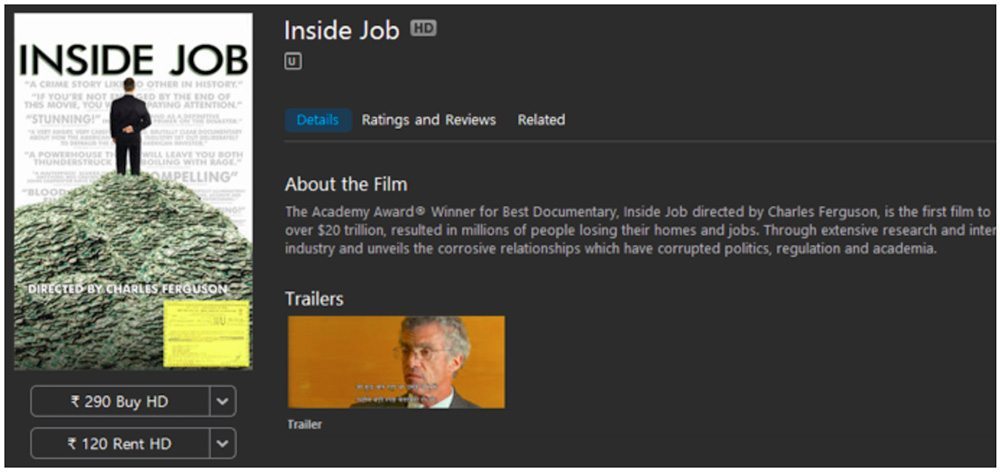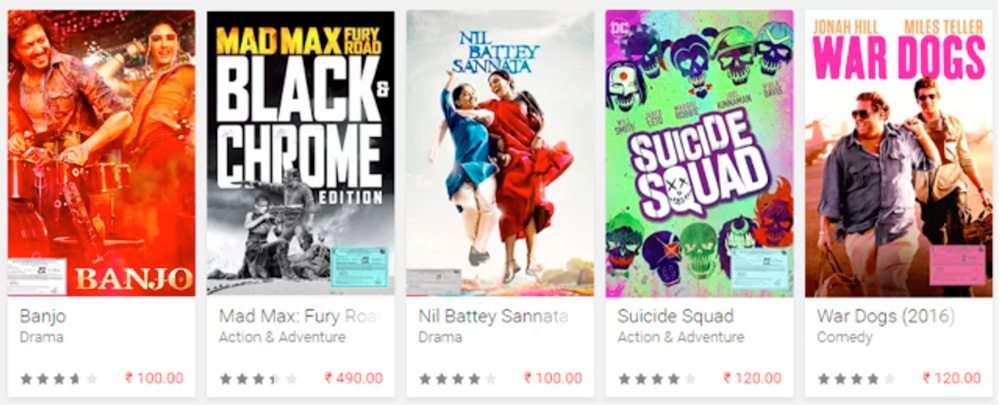When Apple Music released in India last year, all explicit songs were censored. Following customer complaints and outrage, Apple added an option to turn off this filtering off. Of course, they weren’t risking much, legally speaking, by allowing Indians to listen to swear-ridden music. After all, competitors like Saavn, Gaana and Hungama all had a large catalogue of explicit American music, often available for a much more affordable price.
Apple started this epidemic of online self-censorship — something it hasn’t been called out for often enough. Recently, Amazon Prime Video was accused of unnecessary self-censorship too
But this doesn’t take away from the fact that Apple started this epidemic of online self-censorship — something it hasn’t been called out for often enough. Recently, Amazon Prime Video was accused of unnecessary self-censorship too.
iTunes censors films in 2012
When iTunes started selling films in India in December 2012, one crucial bit of information fell through the cracks — all the films on the catalogue were censored. They continue to be today, as Apple requires all its titles to be censored as per company policy.
And guess who does the censorship — the Central Board of Film Certification (CBFC). Even if a title was never released theatrically in India, it needs to go through the censor board before iTunes puts it up. Inside Job, for example, an Oscar-winning documentary about the 2008 global financial crisis, had to get a CBFC certificate.

Placebo, an Indian documentary by director Abhay Kumar that was released on Netflix globally in September last year, was only released on iTunes India after its director Abhay Kumar got a CBFC certificate with some cuts. This, despite the fact that like Inside Job, Placebo was never released theatrically in India to have been censored in the first place.
There is no legislation that requires online censorship. Indeed, earlier this month, the Ministry of Information and Broadcasting categorically stated that it has no plans to regulate online content. In spite of this, Apple has been silently practicing self-censorship for the last four years.
Google follows suit in 2013
In March 2013, Google Play started selling and renting films in India. Here too, the catalogue was censored. Although initial screenshots show that Google didn’t display the CBFC certificates, it does so now.

It’s highly possible that Google was just following in Apple’s footsteps — no other large TV-on-demand provider had existed in India before that, and those who did mostly dealt with Indian content, which was presumably censored without the providers needing to specify this.
In the process, two of the largest tech companies ended up setting a dangerous precedent of needless self-censorship, and have mostly gotten away with it. Who would follow?
Hotstar can’t make up its mind
Star India’s streaming service is a curious case in confusion. All titles that are not paywalled (i.e. they are free for anyone to access) are censored.
And how! Masaan, a film that was already censored for theatrical release, was re-censored for Hotstar. Masaan’s producers gave Star a version that was approved by the CBFC for TV broadcast, and Hotstar went ahead and uploaded this version online. Despite the outrage this drew from Anurag Kashyap, one of the film’s producers, and its director Neeraj Ghaywan, Hotstar has still not fixed the issue.
Hotstar continues to put up the TV-friendly censored version of Indian films online, but has shows with explicit content like Game of Thrones behind a paywall
The problem remains for many films in the free section of Hotstar’s website, including Hate Story 3 and The Dirty Picture.
In April last year, Hotstar released its Premium service to compete with Netflix, and offered many new as well as old HBO shows and films. They were all uncensored. Or as Hotstar puts it, “unspoiled”.
Hotstar continues to put up the TV-friendly censored version of Indian films online, but has shows with explicit content like Game of Thrones behind a paywall.
Netflix offers a refreshing break…
When Netflix released in the beginning of this year globally, everything was uncensored. Both Indian and American films and TV shows were uncensored, and continue to be.
An interesting thing to note here is that Netflix isn’t leaving content uncensored because it is blind to Indian laws — indeed, when a 15% digital tax was announced, Netflix started paying it in India even before Google (I was unable to see a tax component in my Play Store receipts around the time Netflix started charging tax).
…and Amazon ends it
After months of fanfare, Amazon Prime Video released in India, and its catalogue was, again, censored. But Amazon went one step ahead of Apple and Google — they censored their own original shows, blurring out nudity and cutting an entire scene from The Grand Tour.
Even after being shown a copy of the statement by the I&B Ministry that they are not looking at online censorship, Amazon Video India’s head continued to insist that there were legal reasons to blur and cut content on the service.
So, who started it?
In March 2016, I called up the Censor Board and asked a senior bureaucrat there if they were planning on censoring online content. His response: “Dekhiye, hamara jurisdiction sirf theatre hai (Our jurisdiction is limited to film theatres).”
Considering even the Censor Board is unwilling to take on the gargantuan task of online censorship, we have only one thing to blame for the recent spate of online self-censorship: large internet companies who erred on the side of excessive caution, as opposed to the freedom that allowed them to thrive elsewhere.
Apple’s stewardship in self-censorship is matched only by Google. These two internet giants decided to follow a path of legal conservatism and censored content even though they weren’t required to
Apple’s stewardship in self-censorship is matched only by Google. These two internet giants decided to follow a path of legal conservatism and censored content even though they weren’t required to.
Is this the result of their massive failure in China? Perhaps they are desperate to win in the Indian market and are willing to bend over backwards to make sure they don’t provoke the local regulators.
For new streaming services, the footsteps left by these companies are too large to ignore. For whatever reason, iTunes and Google Play were not called out for censorship when they released these films and shows.
In the end it’s us consumers who’re at the losing end.
Disclaimer: The author is a media student currently interning with the Internet Freedom Foundation. However, all opinions in this article are personal to the author and do not necessarily reflect those of any organizations he is affiliated to.
Subscribe to FactorDaily
Our daily brief keeps thousands of readers ahead of the curve. More signals, less noise.
To get more stories like this on email, click here and subscribe to our daily brief.
Lead visual: Nikhil Raj








